
The controversial Rwanda plan is set to see the first batch of migrants be flown to Rwanda under a new scheme from the British government.
In April, prime minister Boris Johnson announced that people seeking asylum in the UK will be sent some 4,500 miles from the UK to Rwanda. There they will be able to claim asylum and remain in Rwanda whilst they wait for their application to be approved or rejected. If their claim is approved they will be entitled to remain in Rwanda. Returning to the UK will not be an option.
Since the announcement of the scheme, the UK government has faced widespread national and international criticism. The plan is simply inhuman – but it’s not too late for the government to back down from this cruel plan.
As The Canary previously reported:
“Campaigners, rights groups, and politicians have called the plans “ill-conceived, inhumane and evil.”
In 2021, there were at least 28,526 people who were known to have crossed the Channel in small boats – that’s up from 8,404 in 2020. This year’s figure is set to be much higher, according to Border Force union officials.
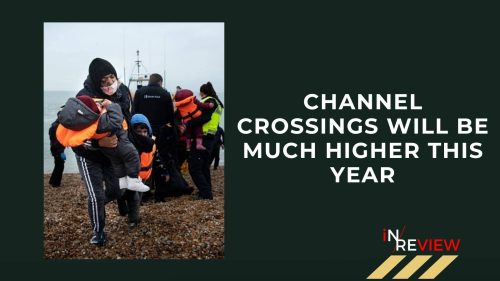
According to Home Office figures from last year, 75% of all small boat arrivals were men aged 18 to 39. About 5% were men aged over 40, 7% were women over 18, and 12% were children under 18 (of whom three-quarters were male).
In recent times there has been a greater mix of nationalities, crossing the Channel – 30% of small boat arrivals last year were Iranians, 21% were Iraqis, 11% Eritreans and 9% Syrians, said the Home Office.
Iranians initially made up the vast majority of arrivals – but the number has dropped.
The plan is a five-year trial and will see some asylum seekers sent to the central African county. It is understood that the plan will be aimed at single young migrants who arrive through “illegal, dangerous or unnecessary methods”, such as on small boats or lorries.”
Anyone arriving in the UK illegally since 1 January will fall under the scheme and there is no limit on numbers.
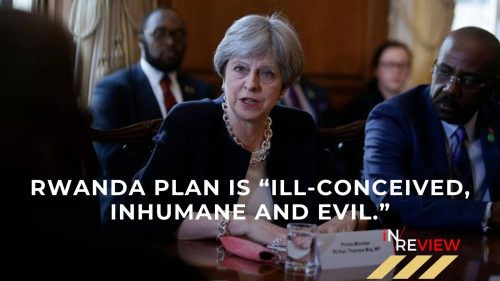
Rwanda will take responsibility for those sent there and has said migrants would be “entitled to full protection under Rwandan law” with equal access to employment and services.
The UK is investing £120 million into the “economic development and growth of Rwanda” as part of the deal. The government said it would also fund costs, which would be similar to those incurred in the UK. According to the Times, it’s estimated to cost the government a reported £20,000 – £30,000 for each migrant sent to Rwanda.
Rwanda already takes in refugees and asylum seekers from other African countries who have reached Libya, under a UN agreement.
The scheme is voluntary and is meant to allow those taking part to resettle in third countries, return to their home countries or stay in Rwanda.
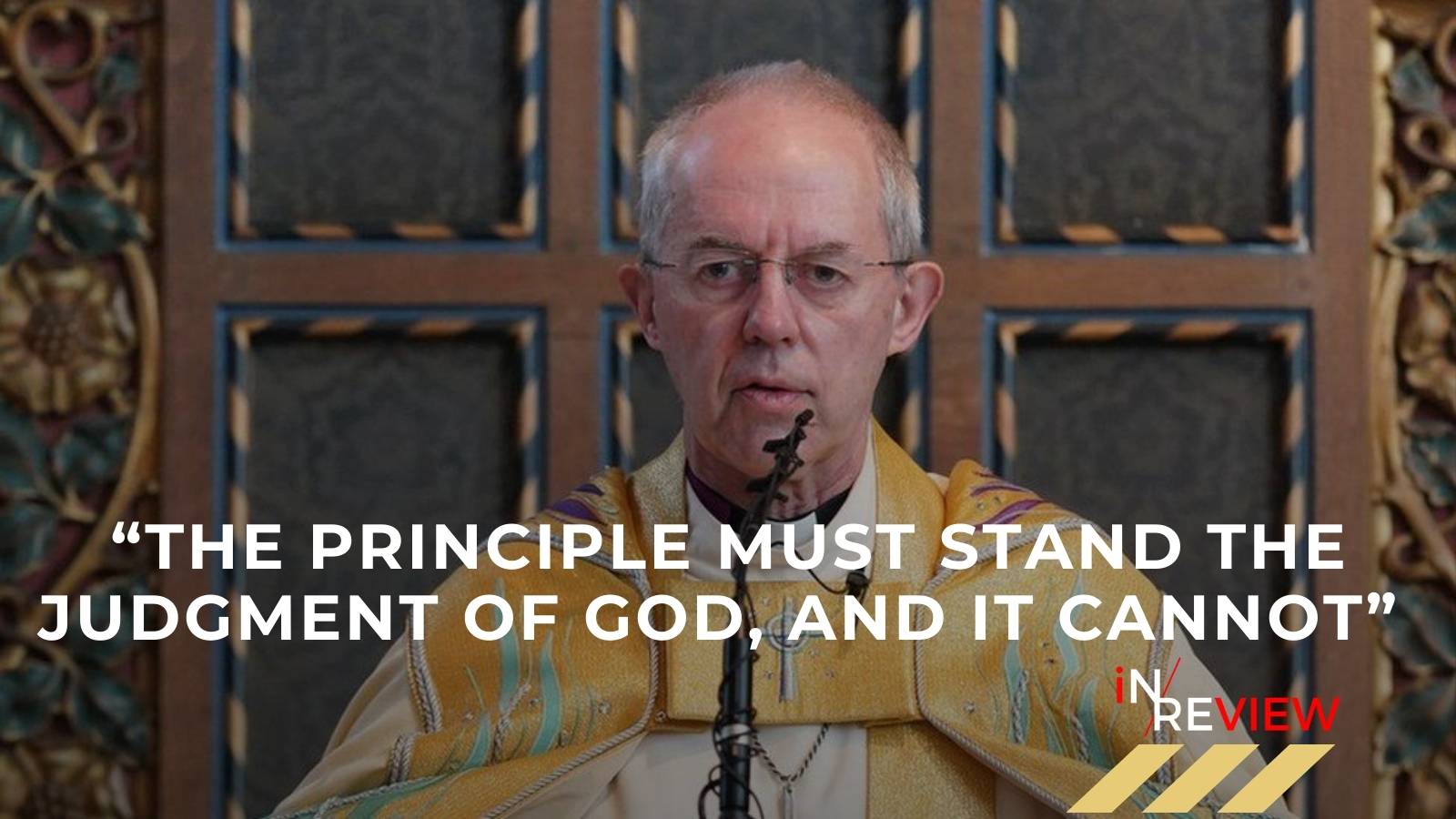
The scheme has faced backlash from many institutions and famous individuals. Perhaps the most prominent in the UK is the Archbishop of Canterbury – who called the plan ‘ungodly.’
The archbishop’s unexpected intervention came following criticism for the scheme from Labour politicians, human rights groups and the United Nations.
He is expected to say that the policy is un-Christian and raises “serious ethical questions”.
“The details are for politics,” he will say. “The principle must stand the judgment of God, and it cannot.
“It cannot carry the weight of our national responsibility as a country formed by Christian values, because sub-contracting out our responsibilities, even to a country that seeks to do well like Rwanda, is the opposite of the nature of God who himself took responsibility for our failures.”
A major criticism of the scheme is that it fails to identify risks for vulnerable groups such as LGBTQ+ refugees. Sonya Sceats, the chief executive of Freedom from Torture, said: “The government’s wilful blindness to the risks facing people expelled under this scheme are frankly horrifying, including attempts to minimise the threat posed to LGBTQI people in Rwanda.”
Dame Emma Thompson has described the scheme to send migrants to Rwanda as “eye-wateringly mad and callous”. Adding: “We’re exhibiting a callousness in government that I don’t think reflects the soul of this country and the nature of the people in this country.”
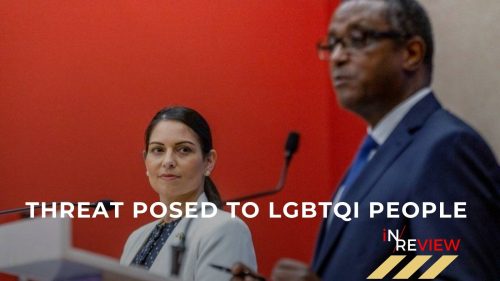
Other important questions that need to be answered include: What is the UK’s responsibility to the refugees after they arrive in Rwanda? If there are illnesses, accidents and/ or attacks do we as a county have a moral and/or legal responsibility? The Spectator says that even if Rwanda did not have a recent history “of trampling on civil liberties and basic human rights” this would still be a concern.
And since the UK and Rwanda say only adults will be shipped to Rwanda, and the Home Office says families will not be broken up, how can the Home Secretary be confident she has not created a perverse incentive to malign smugglers, to carry whole families across the dangerous Channel crossing in precarious small boats, putting the lives of more children at risk?
There are many things wrong with Priti Patel’s one-way ticket scheme. It’s cruel and inhumane to forcibly deport people who risked their lives to claim asylum in Britain – most of whom the Home Office accepts as refugees – thousands of miles away to Rwanda where they likely have no ties and could be at risk.

In an article from the Independent, the writer states that Priti Patel hit back at her Rwanda plan critics by repeatedly claiming they offered up no alternative to her plan. The paper says there is a clear alternative that would be a far better solution.
The writer points to the Dublin Regulation – an arrangement with France and the European Union to return anyone claiming asylum in the UK to the first country within the larger EU they had been to first – but that was until Brexit happened.
When Brexit happened, the UK left this arrangement with the EU without anything in place, meaning it will be harder to return people. Before Brexit, small boat crossings had barely registered as a major issue for decades, with relatively few crossings made. But after Brexit, the number of crossings exploded.
Before Brexit, small boat crossings had barely registered as a major issue for decades, with relatively few crossings made. But after Brexit, the number of crossings exploded.
“The best way to deter illegal human traffickers is to ensure those who make it across will be returned. It might be cheaper to house someone in the Ritz than Rwanda under the government’s scheme, but surely even cheaper to rehome in Rome instead of either.”
The first flight, taking migrants to Rwanda is creeping closer, but Priti Patel’s Rwanda plan faces plenty of legal challenges.
Charity Freedom from Torture is preparing to bring a legal challenge against the plans to send people to Rwanda. Its crowdfunder for legal costs says:
“Treating people who are seeking safety from torture and war as if they’re a problem to be got rid of is not only deeply immoral, but likely unlawful.”
The charity sent a letter to the Home Office explaining why it was looking into legal action. The charity’s solicitor Carolin Ott said:
“Our client further considers the policy constitutes a breach of the Home Secretary’s duty not to induce breaches of human rights by her agents and is unlawful because it is contrary to the Refugee Convention.
“A policy which raises such a ‘shopping list’ of potential illegality and poses such a risk to individuals should plainly not be enforced until its lawfulness has been properly tested.”
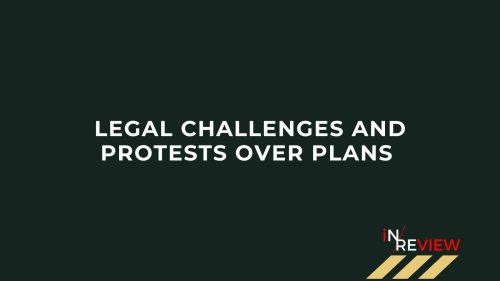
Meanwhile, campaigners from Detention Action has teamed up with charity Care4Calais and the Public and Commercial Services Union. The union represents Home Office staff who would have to carry out the proposed plan. They’ve also sent a pre-action letter to the government warning them about an incoming legal challenge. They say they’re challenging:
“the Home Secretary’s failure to disclose the criteria dictating which people seeking asylum will be transferred by force to East Africa and which will remain in the UK.”
Law firm InstaLaw has also launched its own legal challenge, which the Guardian reports:
“states that the home secretary’s proposals run contrary to international law and the UN refugee convention, as well as breaching British data protection law.”
There have also been protests and criticisms from lawyers, human rights activists, and everyday people.
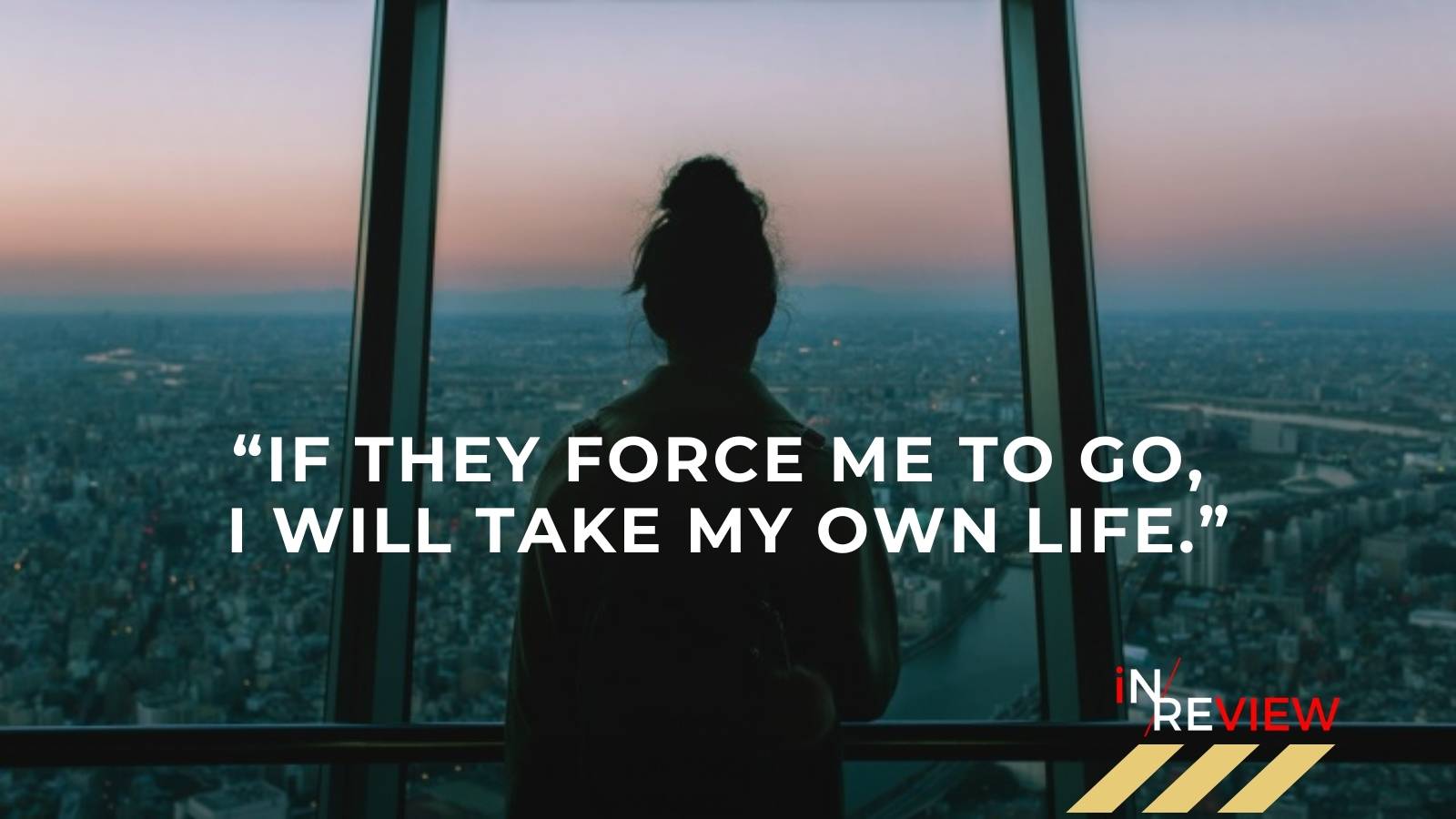
Al Jazeera spoke to people at detention centres in the UK who are scheduled for deportation – just under a week from the first flight on June 14. Those who spoke to Al Jazeera paint a picture of desperation and fear as well as questionable conditions inside the detention centres.
The detainees spoke of mental health struggles, and hunger strikes. The names have been changed to protect the individuals.
Ahmed, from Syria, said he fled the war-torn country after refusing to join the army and arrived in the UK without documents. He is due to be deported on the first flight.
“I escaped and came to the UK through the Balkan countries,” the 20-year-old, detained at the Colnbrook Immigration Removal Centre near London Heathrow Airport, told Al Jazeera by phone.
“Unfortunately, on May 20, the Home Office notified me of the decision and gave me a ticket to Rwanda.”
He is on a hunger strike to protest the move.
“I don’t see any reason why I should go to a country in Africa where I don’t have relatives and family. I don’t know the people there. I will refuse to go, but if the UK government insists on my deportation to Kigali and forces me to the plane, I will take my own life.”
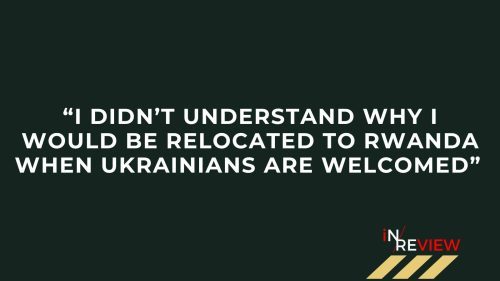
Ferhad is 23, He is a Kurdish detainee from Iran at the same centre. He said the prospect of deportation is bleak when compared with how Ukrainians have been welcomed. He is due to be deported on the first flight. He is also on a hunger strike.
“When the war in Ukraine started, all Ukrainians were welcomed and given better treatment,” he said. “Since we are all refugees, I didn’t understand why I would be relocated to Rwanda when Ukrainians are welcomed, given a better life, shelter and everything they need.
“Regardless of our origin, we are all human beings. Kill me here or let Iran kill me, instead of taking me to Rwanda.”
Asim, 25 from Sudan, arrived in Britain by boat via France. He risked his life through Libya and over the Mediterranean Sea to reach the UK. But days later, on May 17, “I was given the decision to send me to Rwanda,” he said by phone from Colnbrook to Al Jazeera.
“I fled Darfur due to conflict. Kidnapping and taking me to Rwanda is against my basic human rights and to protest that, I am on hunger strike.”
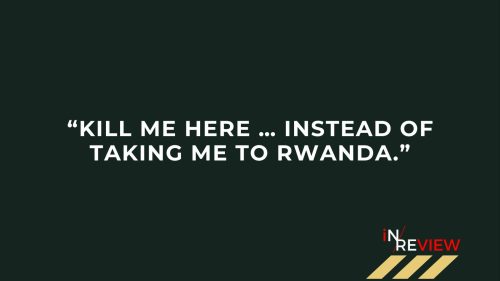
Al Jazeera claims to have seen documents from the Home Office sent to some refugees that say individuals cannot appeal the decision to send them to Rwanda on June 14.
They also described a distressing atmosphere and questionable conditions within the detention centre. They claim guards took their smartphones on arrival and provided them with phones that do not have internet access.
One Muslim detainee said he did not feel assured that the food being served at the centre was halal.
“We are hearing tragic stories about the severe impact on mental health, with reports of self-harm,” Enver Solomon, head of the UK-based Refugee Council, said of the information his organisation has received from detainees. “We are concerned the government is not seeing the face behind the case and it should be doing far more to exercise its duty of care towards vulnerable people.”
A Home Office spokesperson responded to these claims, saying detainees have been able to contact their legal representatives by telephone, email and video call – and receive 30 minutes of free advice through a legal aid scheme.
The spokesperson also said detainees are provided with three good quality meals each day meeting religious, dietary, cultural and medical needs.
Priti Patel’s Rwanda plan faces multiple legal challenges
Home Office’s Rwanda deportation plans face high court challenge
The Guardian view on deportations to Rwanda: cut out the stunts
‘This policy is disgraceful’: Home Office worker fears Rwanda asylum plan will put ‘lives at risk’
‘I’ll take my life’: UK refugees being deported to Rwanda despair
Rwanda scheme is ‘eye wateringly mad and callous’ says Emma Thompson
Rwanda asylum scheme: Archbishop of Canterbury hits out at government plans, saying they are ungodly
People at risk of suicide facing deportation to Rwanda told to try sudoku
‘Inhumane’: UK plan to send refugees to Rwanda sparks criticism
Why are migrants being sent to Rwanda and how will it work?
Come up with a better plan than Rwanda migrants scheme, Patel challenges critics
Unspeakably cruel new plans to send asylum seekers to Rwanda
How many people cross the Channel and what is the Rwanda plan?
You must apply for asylum if you want to stay in the UK as a refugee. To be eligible you must have left your country and be unable to go back because you fear persecution. Apply for a visa if you want to come to the UK for another reason (for example to work, study or remain with family).
Boris Johnson said 50 people have been told they will be sent to Rwanda within the next fortnight, and that he was ready to fight with “leftie lawyers” seeking to challenge the government’s plans for refugees.
The UN, and human rights groups and organisations have long denounced the approach and its inhumane policies. Upon arrival, asylum seekers are essentially treated like prisoners, with multiple rights violated, including through arbitrary detention and denial of medical care.
Poor
Rwanda is, by all measures, a poor country. The 1994 war obliterated the country’s economy, social fabric, human resource base, and institutions. Almost 90 percent of the population lives on less than US$2 per day and half of its population lives on less than US$1 per day.

Copyright WTX News 2025
